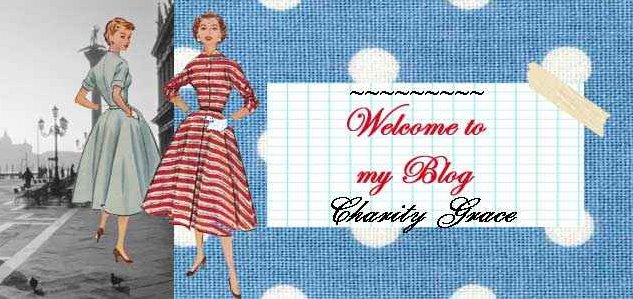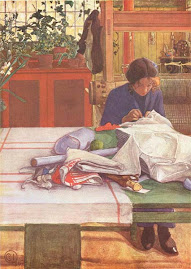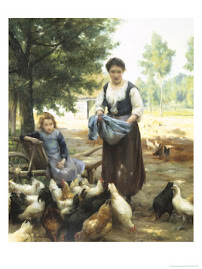Babies can be expensive—but they don’t have to be nearly as expensive as we think. There are a multitude of ways to cut costs on baby expenses. Here are some. I don’t do all these things, but all are good ways to save money on little ones, starting at birth, literally.
Home Birth
OK, I haven’t done this. But a lot of people I know have. Years ago, everyone had their babies at home. Now many people are doing it again, including celebrities like Cindy Crawford, Demi Moore, and a host of others. Just asking around, it seems that the average cost for prenatal care and home delivery is about $2,000. This is drastically less than prenatal doctor care and a hospital birth, especially if you don’t have insurance. Home birth isn’t an option for everyone, but it’s a beautiful and safe way to deliver for a lot of women who are at low risk of complications and live where it’s legal. Home births are non-invasive AND cheap.
Breastfeed
Formula for one baby for one year will cost between $1,000 and $2,300 depending on whether you use the powdered version or ready-to-pour. That’s if your baby even tolerates regular formula and doesn’t have to have a special (and specially expensive) kind. I don’t look down on women who don’t breastfeed, but I have to admit that I’m baffled as to why anyone would buy formula when God has provided baby’s perfect food absolutely free, from mom. What’s more, research shows (and most pediatricians will testify) that breastfed babies are sick far less than formula fed babies, so that eliminates a lot of dollars going out for doctor visits and medicine. I’m sold (literally) on breastfeeding for many reasons, not the least of which is money saved.
Cloth diaper
This is something I’ve dreamed of but never really done. Maybe one day. Disposable diapers cost a lot, even when you buy store brands. Depending on what kind of cloth diapers and accessories you buy, there will be some initial investment, plus the cost of detergent and so forth, but the cost will still be drastically less than disposables.
Make your own wipes
Cut up old towels and re-wash them, or make your own wipes from inexpensive paper towels. One mom recommends just keeping a roll of paper towels and a spray bottle of soapy water handy. If you use regular wipes, try cutting them in half for small jobs.
Make your own baby food
The AAP’s most recent breastfeeding recommendations state what a lot of moms have known all along—it’s rarely necessary to introduce solids before 6 months, and sometimes even later. When you do introduce baby to solid food, make your own. There’s no great mystery to this. Some people use the little baby food maker, but I don’t bother. I just mash or blend whatever vegetable or fruit I have on hand. My babies start with things like mashed banana, baked sweet potato, mashed avocado, applesauce, and pureed garden veggies (like squash). Instead of boxed cereal, I just gave them pureed old-fashioned oatmeal and pureed brown rice. And as they got a big bigger, they ate tiny pieces of whatever we ate. Do stay away from high-allergy foods though.
Don’t Buy New Clothes
You don’t have to buy new clothes for your baby. You can outfit him or her for a little of nothing by shopping at garage sales and thrift stores. When they’re little, babies often wear an item only a few times before they outgrow it, and it’s not uncommon to even find clothes with tags still on. I have beautiful name brand children’s clothes that I’ve gotten at garage sales for mere pennies, far nicer things than I would have gotten if I’d bought items new. You’ll probably be offered hand-me-downs as well, which is where most of my kids’ clothes come from.
Try to wait till baby is born before you invest in clothes anyway. Gift clothes often cover clothing needs for the first few months, if not longer.
Shop Dollar Stores
Lotion, shampoo, and lots of other baby supplies cost a fraction of the regular price at a dollar store.
Freecycle and Shop Used
Join your local Freecycle group and be on the lookout for baby items like furniture. Check out Goodwill, junk stores, or other second-hand venues. Just make sure items like cribs meet safety standards.
Be a Stay-at-Home Mom
You won’t have to pay for childcare, as well as food for those hurried mornings when you didn’t have time to fix breakfast or the nights you’re running late and doctor bills from all the illnesses baby picks up at daycare.
Monday, July 10, 2006
Subscribe to:
Post Comments (Atom)







4 comments:
Stephanie,
I dont want to say I did all of there... but we did a lot of them. I had a wonderful pediatrician, who suggested we made all of our own baby food, which I enjoyed doing and now Hannah has a great appetit for Vegetables,Fruits and soem bizzar stuff too. :)
Reading your post is taking me back in time... I so enjoyed being frugal and staying home.
Todd and I were in debt from previous relationships and we decided we would make a list of what we needed to pay off and I would work for one year. Todd work days and I worked nights. No babysitting, switch off at work was so much fun! ;) I still can remember when we crossed off the last thing on the list and I gave my notice, having a plan helped us to stay frugal.
Love these posts!!
My husband and I are going to have to decide between.
1> Risk the baby having problems because of the eye medication I have to take every day
2> Mom not taking the eye medication for the year or so baby is breastfeeding and risking the glaucoma getting worse
3> Not breastfeeding
I REALLY want to breastfeed. Right now I'm leaning toward (1) but we're going to have to pray and look more at the medication and what we can find when I get pregnant.
BTW: "This is something I’ve dreamed of but never really done. Maybe one day. Disposable diapers cost a lot, even when you buy store brands. Depending on what kind of cloth diapers and accessories you buy, there will be some initial investment, plus the cost of detergent and so forth, but the cost will still be drastically less than disposables"
Might not be as drastically less as thought. Amy Daczyn of Tightwad gazette did a study of electricity costs and discovered that it depended on where you lived and what you paid for electricity and water, as well as the prices you can get disposable diapers for.
For us, for example, cloth diapers would have to be washed in coin operated washing machines. Which makes it even more expensive.
As Amy said, there may be other reasons to cloth diaper rather than thriftiness, but you can not just assume it is cheaper because it seems like it should be since you are not seeing the direct costs hit your grocery bill.
"I don’t look down on women who don’t breastfeed, but I have to admit that I’m baffled as to why anyone would buy formula when God has provided baby’s perfect food absolutely free, from mom."
Some people want to but can't. I have insufficient glandular tissue and pumped and pumped and fed my baby what I could (usually less than an ounce at a time) but had to give him formula in the end to sustain him. I cried because I couldn't breastfeed, but then I got over it and just thanked God for a healthy baby. My baby was more important than the feeding method.
Post a Comment